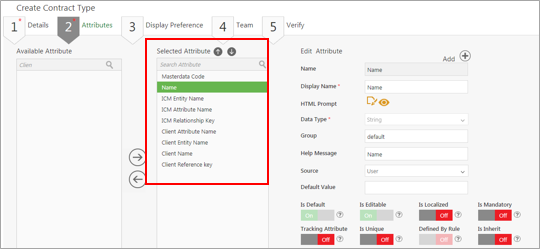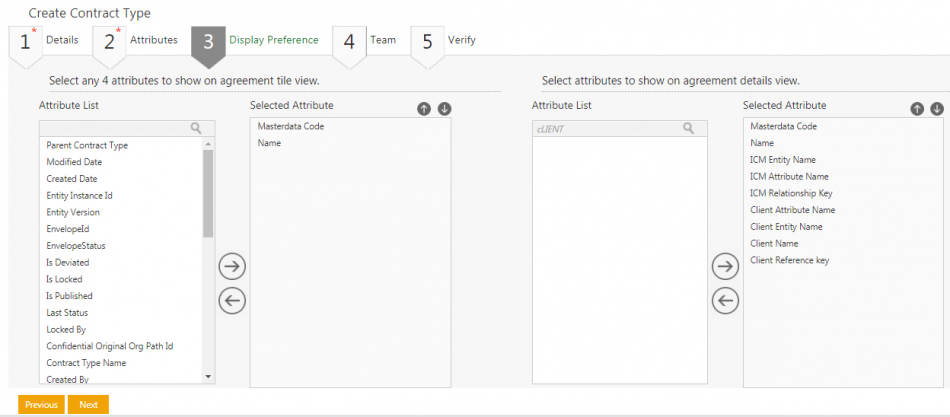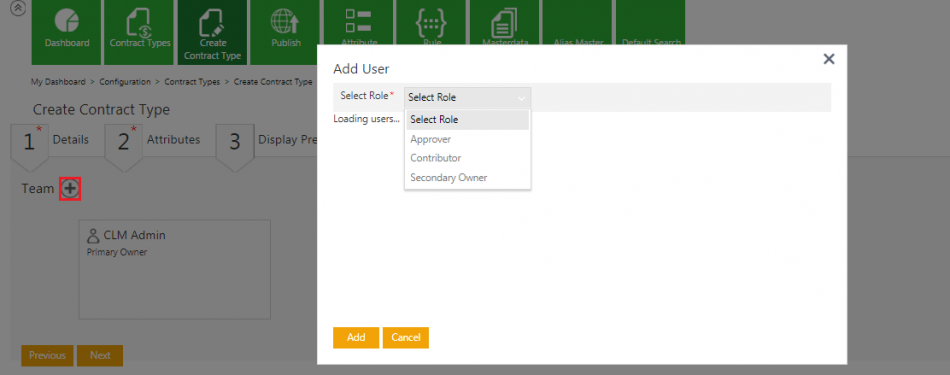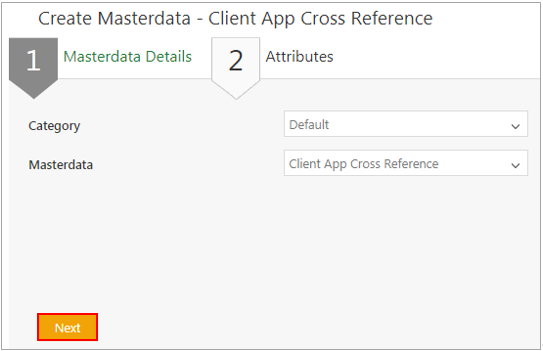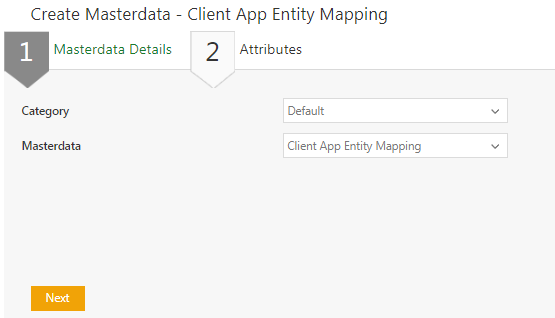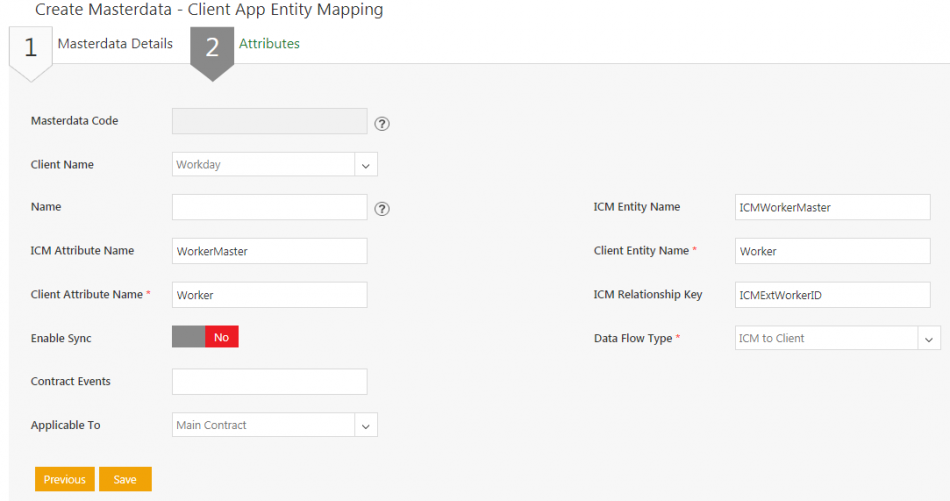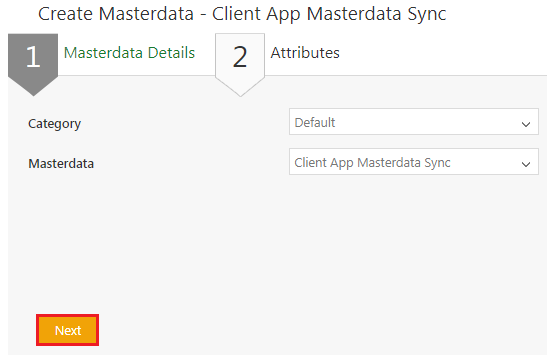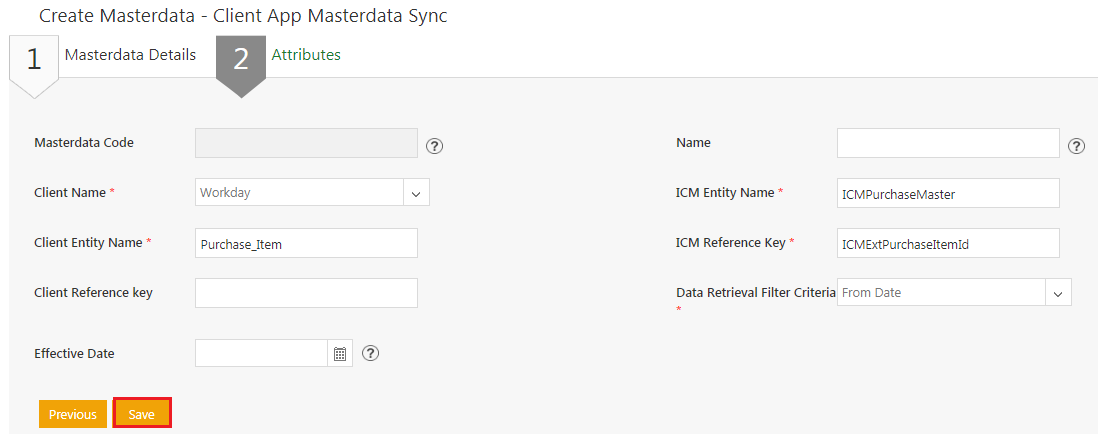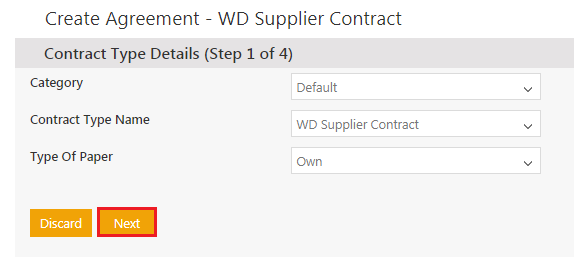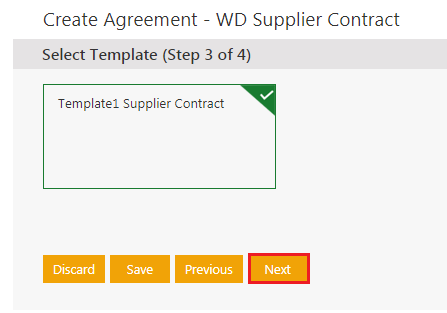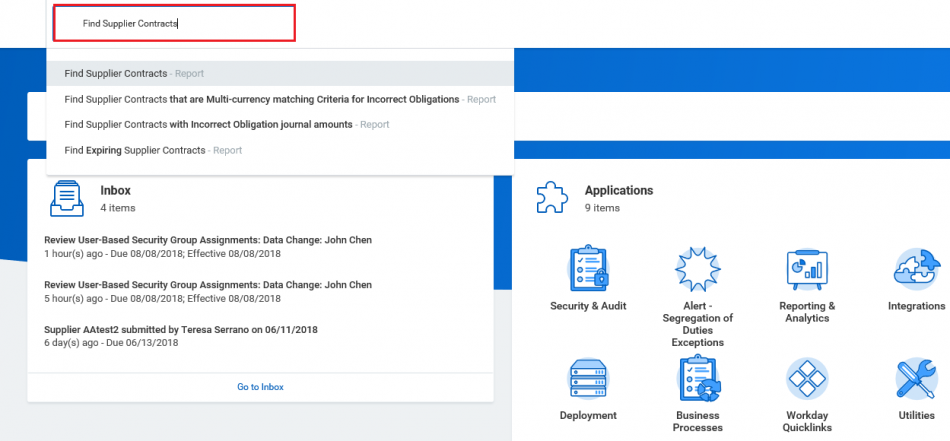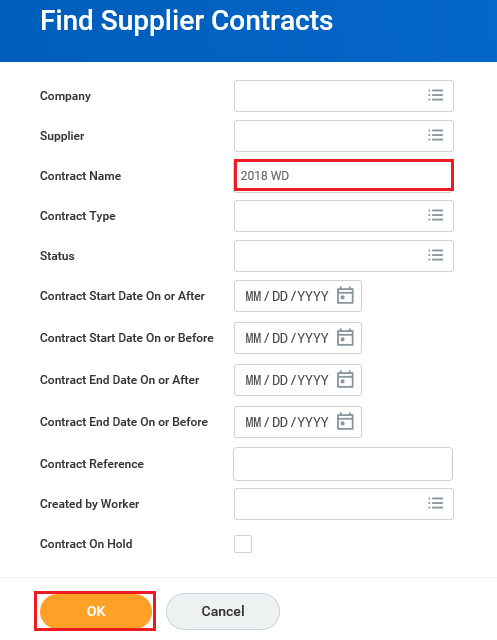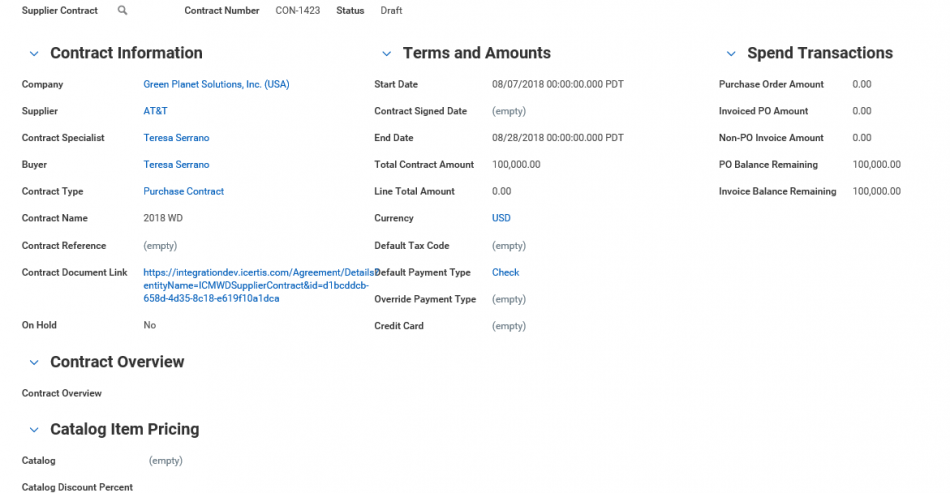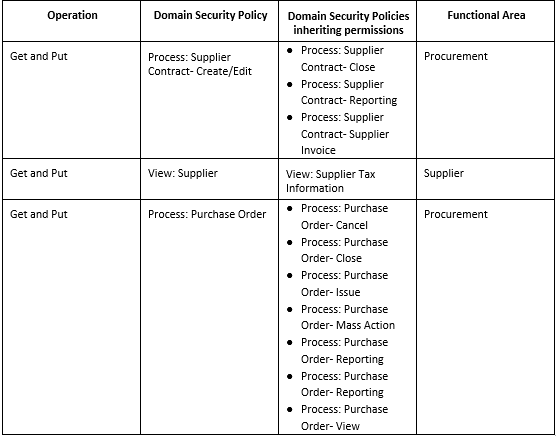Contents
- 1 Icertis Experience for Workday
- 1.1 ICM Side Configuration
- 1.2 Creating Masterdata records for mapping entities
- 1.3 Creating Client App Masterdata Sync
- 1.4 Creating a Supplier Contract in ICM
- 1.5 Viewing the Supplier Contract in Workday
- 1.6 Workday Side Configuration
- 1.7 250409 – Efficient user management between ICM and Workday
- 1.8 207935 – Masterdata Sync from Workday to ICM
- 1.9 220039 /220040 – Viewing and updating Supplier Contracts from ICM in Workday
Icertis Experience for Workday
Icertis Experience for Workday is a highly configurable and comprehensive solution that enables data synchronizing capabilities for mapping business objects between ICM and Workday. ICM integration with Workday provides a seamless user experience to work with the business data from both ICM and Workday.
Icertis Experience for Workday supports following sample use cases:
- Create Supplier Contracts in ICM that allows negotiating and managing the Contract through ICM, but only tracking the status in Workday
- Synchronize the amended and renewed Supplier Contracts from Icertis to Workday
Icertis Experience for Workday offers many benefits:
- Measure supplier performance with access to more detailed information
- Manage the entire process throughout the entire life-cycle of the Agreement
ICM Side Configuration
Use the Configuration tile in the ICM application to specify the mapping details between Workday and ICM by creating Masterdata records for mapping entities. Data Mapping involves the following two primary tasks:
- Creating Masterdata Contract Type
- Creating Masterdata records for mapping entities
Creating a Masterdata Contract Type
Masterdata Contract Type is the core data that changes less frequently and has a unique ID associated with it. For example, Employee Records can be a Masterdata Contract Type and Employee ID can be an attribute associated to that Masterdata Contract Type.
1. Log on to the ICM application.
2. Click Configuration on Dashboard. The Configuration page opens.
3. Click Create Contract Type on the Configuration page. The Select Contract Type page opens and shows the following options:
- Agreement
- Associated Document
- Masterdata
- Contract Request
4. Select Masterdata on the Select Contract Type page and click Next. The Create Contract Type page opens, which consists of these five sections:
- Details
- Attributes
- Display Preference
- Team
- Verify
Each of these sections is described in detail below.
Details
Enter the following basic details of the Masterdata in this section:
- Contract Type Name: Type the name in this field as Client App Cross Reference Mapping. Note that Client App Cross Reference Mapping is an example provided here for the list of Masterdata you need to create. This Contract Type is used for mapping entities between ICM and Workday.
- Contract Type Code: Every Contract Type is assigned a unique ID known as Contract Type Code. The Contract Type Code is generated automatically when you create the Contract Type.
- Enable Approval Workflow: Select Yes to enable the approval workflow.
- Two Column Attribute Layout: Select Yes to enable a two-column attribute layout
Attributes
This section captures important details of the Masterdata you are creating. The integration between ICM and Workday is restricted to the attributes listed below.
Click the plus icon to create them:
- Name
- Client Name
- ICM Entity Name
- Client Entity Name
- ICM Attribute Name
- ICM Relationship Key
- Client Reference Key
- Data Type: String
- Is Default: Off
- Is Editable: On
- Is Mandatory: Select Off
- Tracking Attribute: Off
- Is Unique: Off
- Defined by Rule: Off
- Is Inherit: Off
- Is Searchable: On
- Is Conditional: Off
- Is Lookup: Off
- Is Localized: Off
Display Preference
Select any four attributes that you want to display on the agreement tile view and agreement details view and click Next. The Team section is displayed.
Team
This section shows the existing team members along with their roles for the Masterdata Contract Type.
Click the plus icon to add a user with the Approver role to the Contract Type Masterdata team.
Verify
This is the final section for creating the Contract Type Masterdata. It displays only the sections and attributes that you used to create this Masterdata Contract Type.
1.Verify the information you entered in the previous sections. You can go back and make changes or click Create.
2. Send the Contract Type for approval.
3. After Masterdata is approved, publish the Masterdata Contract Type to make it available for Agreement creation.
Creating Masterdata records for mapping entities
You can create Masterdata records for mapping the entities between ICM and Workday.
Creating Client App Cross Reference Mapping
1. Log on to the ICM application.
2. Click Configuration on ICM Dashboard. The Configuration page opens.
3. Click Masterdata on the Configuration page. The Masterdata page opens.
4. Click Create Masterdata. The Create Masterdata page opens.
- Category: Select Default from this drop-down.
- Masterdata: Select Client App Cross Reference from this drop-down.
6. Click Next. The Attributes page opens.
- Client Name: Select Workday from the drop-down.
- Name: Type the name of the Masterdata.
- ICM Entity Name: Type the name of the Agreement for which you are creating the Masterdata. For example, ICMSupplierMaster
- Client Entity Name: Type the name of the Entity of Workday. For example, Supplier.
- ICM Reference Key: Type the ICM Reference Key value in this field. This is used to track the Masterdata in Workday that was created in ICM. For example, ICMExtSupplierId
- Client Reference Key: Type the Reference attribute to be entered from Workday. For example, Supplier_Reference_ID.
- External Contract Creation Criteria: Type the ICM entity metadata value that evaluates the value and creates the Contract Type. You can type @true to create the Contract Type Masterdata record and make it visible in Workday.
- External Contract Creation Event: Select the appropriate event from this drop-down to enable create object in in Workday.
- External Contract Update Event: Select the appropriate event from this drop-down
8. Click Save after entering the details.
Creating Client App Entity Mapping
You can create a Masterdata record for the Contract Type Masterdata that you created earlier. This helps in mapping the entities between ICM and Workday.
To create a Masterdata record:
1.Click Configuration on My Dashboard. The Configuration page opens.
2. Click Masterdata on the Configuration page. The Masterdata page opens.
- Masterdata Details
- Attributes
5. Click Next at the end of Masterdata Details section to go to the Attributes section and complete creating the Masterdata record.
Masterdata Details
This section displays the categories you can select and the Masterdata Contract Type for creating the Masterdata record.
1. Select the category from the drop-down list.
2. Select the Contract Type Masterdata that you created earlier. For mapping the data between ICM and Workday, select Client App Entity Mapping.
3. Click Next. The Attributes page opens.
4. Enter the following details in appropriate fields
- Masterdata Code: Every Masterdata record you create is assigned a unique ID. It is generated automatically when you create the Masterdata.
- Client Name: This helps in defining the mapping with the external system. For example, select Workday from the Client Name drop-down to define the mapping between ICM and Workday
- ICM Entity Name: Type the ICM Agreement Contract Type for which you are creating the mapping between ICM and Workday.
- ICM Attribute Name: Type the ICM Attribute Name of the Contract Type Masterdata.
- Client Entity Name: Workday entity name for which you are defining the mapping between ICM and Workday.
- Client Attribute Name: Type the Workday side attribute name for the client entity name that you mapped.
- Data Flow Type: Defines the direction of mapping for the data flow. You can select the following data flow type.
- ICM to Client: Select this option if you intend to map the data from ICM to Workday.
- Contract Events: It is used to synchronize data from ICM to Workday. You can enter the events that happen in the Contract life cycle. For example, Created, Approved and so on.
- Applicable to: Select one of the following from this drop-down to make this Masterdata record applicable to the Main Contract and Amendment or both:
- Main Contract: Select this if you want to make the Client App Entity Mapping Masterdata applicable to the main Contract.
- Amendment: Select this if you want to make the Client App Entity Mapping Masterdata applicable to the Amendment added to the main Contract.
- Both: Select this if you want to make the Client App Entity Mapping Masterdata applicable to the main contract and the Amendment added to it.
5. Click Save to save the Masterdata record and enable mapping between ICM and Workday.
Creating Client App Masterdata Sync
You can create a Masterdata record for the Contract Type Masterdata that you created earlier. This helps synchronize the Masterdata between Workday and ICM.
To create a Masterdata record:
1.Click Configuration on My Dashboard. The Configuration page opens.
- Masterdata Details
- Attributes
1. Select the category from the drop-down list.
3. Click Next. The Attributes section is displayed.
4. Enter the following details in the following fields.
- Masterdata Code: Every Masterdata record you create is assigned a unique ID. It is generated automatically when you create the Masterdata.
- Name: Type the name of the Masterdata record you are creating for mapping with Workday. Ensure that the name you give to the Masterdata record is unique and can be identified easily. For example, you can use WD_Supplier_Name for mapping:
- Client Name: Defines the mapping with the external system. For example, select Workday from the Client Name drop-down to define the mapping between ICM and Workday.
- ICM Entity Name: Type the ICM Agreement Contract Type for which you are creating the mapping between ICM and Workday.
- Client Entity Name: This is the Workday side entity name for which you are defining the mapping between ICM and Workday.
- ICM Reference Key: Type the ICM Reference Key value in this field. This is used to track the Masterdata in Workday that was created in ICM.
- Client Reference Key: Type the Reference attribute to be entered from Workday.
- Data Retrieval Filter Criteria: Select from one of the following options:
- From Date: Select this option to map the data with Workday from a specific date.
- From Last Run: Select this option to synchronize the data with Workday since the time this operation was last performed.
- Data Retrieval Filter Criteria: Select from one of the following options:
- From Date: Select this option to map the data with Workday from a specific date.
- From Last Run: Select this option to synchronize the data with Workday since the time this operation was last performed.
- Effective Date: Select the date using the calendar control from which the data should be mapped with Workday.
Creating a Supplier Contract in ICM
Supplier Contract is an Agreement in which the seller promises to provide the specified goods or services to the buyer on an agreed date at the agreed price.
The exact process of creating a Supplier Contract in ICM depends on how the workflow is implemented in your organization.
To create a Supplier Contract in ICM:
1.Click Agreement Management on the Dashboard. The Agreement Management page opens.
- Contract Type Details
- Attributes
- Select Template
- Verify
Provide the following basic details of the Agreement in this section.
- Category: These are used for organizing the Agreements and are created by the administrator. The drop-down shows all the categories created while creating the Contract Type. Select the desired category from this drop-down.
- Contract Type Name: This shows the list of Contract Types that were created for the selected Category in the earlier step.
- Type of Paper: Select either Own or Third party Template for creating the Agreement. Provide your own Template if you select Own type of paper. Select Third Party option when you want to create the Agreement by uploading the Template provided by the vendor.
Of the four sections mentioned above, the Select Template section only appears for Own type of paper. The two options for Type of Paper are:
- Own: If you select Own type of paper, the Select Template section is displayed with the list of Templates available for the selected Contract Type. Note that, selecting Own Type of Paper provides you with the option to use either Own or Third Party paper for the Agreement you are creating.
- Third: If you select Third Party type of paper, the Select Template section is not displayed and you will have to upload the Template provided by the vendor manually.
3. Click Next. The Attributes section is displayed.
Attributes
This section captures the important details of the Agreement you are creating. The attributes appearing on this page vary according to the Contract Type you select. Following is an explanation of some of the less obvious attributes:
- Organization Unit: Select the organization unit in which you want to create this Agreement. Users within an organization unit must have specific privileges to take any action on the Agreement. For example, users with View privilege can only view the Agreement whereas users with Manage privilege can perform actions on the Agreement.
- Contract Name: Specify a name for the Agreement you are creating. Note that the name must be unique and easily identifiable. This helps in tracking the Agreement easily.
- Agreement Code: Each Agreement is assigned a unique ID known as its Agreement Code. It is generated automatically on clicking the Create button to create the Agreement
4. Click Next. The Select Template section is displayed.
Select Template
This section displays the Templates that are available for the selected Contract Type. This section is available only if you select Own Type of Paper while creating the agreement. Select the appropriate Template in this section and click Next. The Verify section is displayed.
Verify
This is the final step for creating the Agreement. It displays only the sections and attributes that you have used for creating this Agreement. Verify all the details you have entered. On this page, you can:
- Click Previous to go back and make changes to the Agreement. Click Next to return to this section after making the required changes and create the Agreement.
- Click Create to create the Agreement. The Agreement will not be visible to anyone except the user who created it, until it is published.
- Click Create and Publish to create and publish the Agreement. After publishing, other users with adequate access can search, view and take actions on the Agreement. After publishing, a Draft watermark appears on the Agreement until it is approved.
- Click Create and Send for Approval to create and send the Agreement for approval. The Agreement is sent for approval to the approvers that are set by a rule on the Contract Type selected for this Agreement and the status changes to Waiting for Approval. If no rules are defined and no approvers are set, the Agreement status automatically changes to Approved.
- Click Discard to delete the Agreement you are creating.
Viewing the Supplier Contract in Workday
ICM integration with Workday allows you to only view the Contract in Workday.
After you create a Supplier Contract in ICM, you can view it in Workday using the following process:
1. Log on to Workday as an Integration System user provisioned in ICM and Workday.
2. Type Find Supplier Contract in the text box on the Welcome page. The Find Supplier Contracts page opens.
3.Type the Contract name you entered in ICM in the Contract Name field on Find Supplier Contract page.
4. Click OK. The Report Criteria page opens showing the list of relevant Contracts.
5. Click the magnifying glass icon under Supplier Contract. The Contract Information page opens showing the details of the Contract created in ICM.
Workday Side Configuration
Administrator from Workday end must create the following domain security policy permissions for creating Workday Integration security groups.
Note that, the domain security policy permissions provided below are just an example of the various security policies the Workday administrator will have to create.
250409 – Efficient user management between ICM and Workday
ICM now integrates with Workday and provides capability of synchronizing Worker Data (Employee records) from Workday to ICM for efficient user management. This integration gives ICM the capabilities to tag Worker Data (for example, Employee ID, Employee Name, etc.) and Worker Role, and map them to the relevant ICM user attributes which can be referred and used across application as required.
207935 – Masterdata Sync from Workday to ICM
ICM integrates with Workday and provides capability of synchronizing important Masterdata from Workday to ICM through a technical configuration. This list of Masterdata includes:
• Supplier
• Payment Terms
• Payment Type
• Purchase Items
The synchronized Masterdata can be used and referred across ICM application as required. For example, Supplier Masterdata can be used while creating supplier type contracts in ICM.
220039 /220040 – Viewing and updating Supplier Contracts from ICM in Workday
ICM now integrates with Workday and provides capability of viewing and updating the Supplier Contracts in Workday that are originally created in ICM. When a Supplier Contract is created in ICM, it is synchronized in Workday. Any updates and amendments made to the ICM Contract are auto-synchronized and get reflected in Workday.
Note: Any Amendments created in ICM will not reflect as separate amendment documents in Workday, but the main Supplier Contract will directly reflect the respective changes, and a Note will be added in Workday to indicate that the Contract has been amended in ICM.

